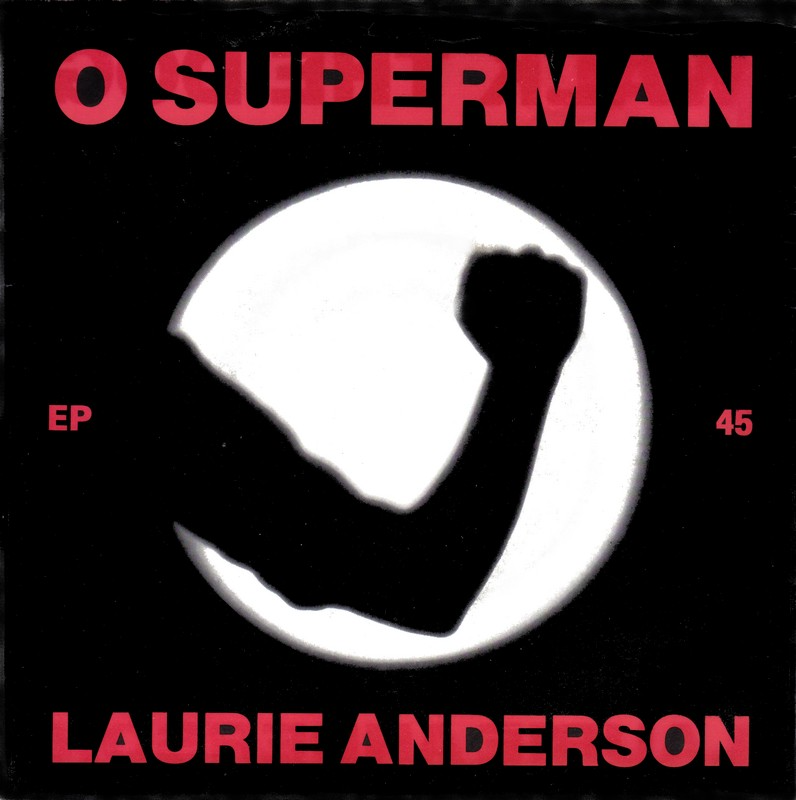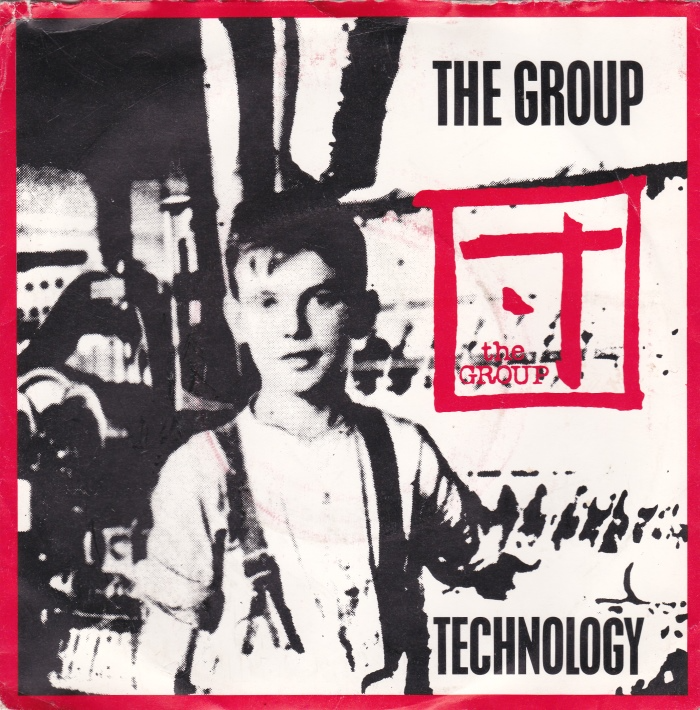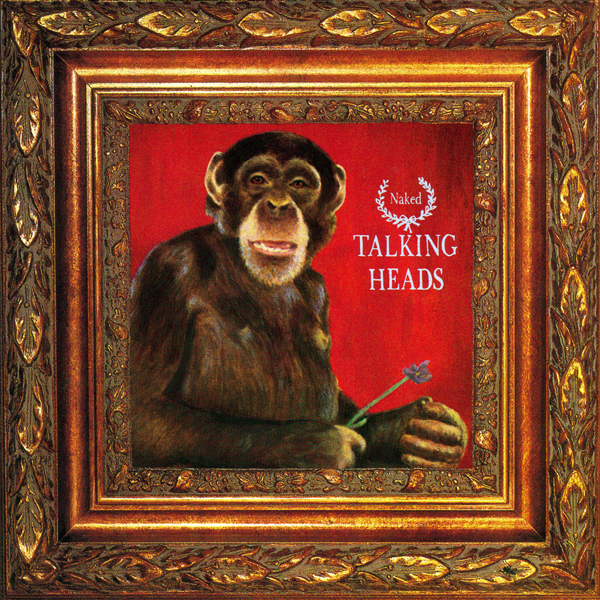21 ESSENTIAL POST-PUNK AND NEW WAVE SONGS ABOUT TECHNOLOGY
Technology has always played an intrinsic part in the creation and ongoing development of music, from the rise in the popularity of jukeboxes in the early 20th century, to the release of the first Sony Walkman in 1979, to the first signs of digital music distribution in the late 1990s.
It should therefore come as little surprise that many songs released across the various eras of post-war popular music have been dedicated to exploring the pros, cons, and nature of technology (encompassing the likes of computers, robots, or even just newfangled household gadgets). In this feature Blitzed has sought out the best of these technology-related songs from the post-punk and new wave era onwards.
As always the list will include some big hits that you’re bound to know, but we’ve also included some lesser-known artists to keep things interesting, as well as some underrated tracks that you might not be quite so familiar with.

ELVIS COSTELLO AND THE ATTRACTIONS – RADIO, RADIO (1978)
Starting life as a Springsteen-inspired pub rock song, by the time ‘Radio, Radio’ was released in 1978 it had morphed into a frenetic, organ-dominated criticism of contemporary English radio stations. But despite its caustic lyrics, at the heart of the track is the message that radio and its associated technologies were hugely important to people of a certain generation; to those who really had spent their childhoods “tuning in the shine of the light night dial / doing anything [their] radio advised”.

MI-SEX – COMPUTER GAMES (1979)
Cashing in on the popularity of late 1970s burgeoning video game technology, ‘Computer Games’ was the third single by New Zealand band Mi-Sex. With its hiccupped vocals, gung-ho chorus and unfettered rhythms the track’s novelty value undoubtedly contributed vastly to its success (it topped the charts in Australia) although today it can be appreciated as a song that effectively captures the thrill many must have felt when playing groundbreaking games like Star Fire and Speed Freak for the first time.

THE BUGGLES – VIDEO KILLED THE RADIO STAR (1979)
This cleverly kitschy track – written by Trevor Horn, Geoff Downes and Bruce Woolley – was famously the first video to be aired on MTV, and subsequently shot to number one in numerous countries worldwide. This was rather ironic, given that the whole point of the song was to berate (or at the very least question) the integration of “machine[s] and new technology” into everyday life, particularly when it came to music and the arts.

TUBEWAY ARMY – ARE ‘FRIENDS’ ELECTRIC? (1979)
The cold, synthesised sound of this UK chart topper was actually an accident, with Tubeway Army frontman Gary Numan stumbling upon a Minimoog synthesiser left in the studio in which he and his band were recording a punk album, and then using it to great effect on this track. The song essentially imagines a world where human-like machines come to your door offering various services including prostitution, hence the inverted commas around the word ‘friends’ in the song’s title.

GARY NUMAN – CARS (1979)
Just months after he’d hit number one with Tubeway Army, Numan was back at the top with his debut solo single ‘Cars’. On the surface the track simply seemed to extoll the virtues of driving machines, but it was really a commentary on how people use technology to isolate themselves from the real world (“I feel safest of all / I can lock all my doors”). With its deliciously expressionless vocal and inspired synth melody, it’s little wonder ‘Cars’ was such a hit.

THE HUMAN LEAGUE – WXJL TONIGHT (1980)
‘WXJL Tonight’ is the closing track from Human League’s second album Travelogue, and it imagines that all radio stations on earth have been completely subsumed by automated technology – except one. The track is typical of early Human League material in that it’s dominated by whirling, near-discordant synths, Oakey’s booming vocal and a slightly abstruse subject matter, and as such is a dazzling reminder of the arty, experimental side of the group that was lost post-Dare.

KRAFTWERK – COMPUTER WORLD (1981)
Kraftwerk are probably the only band in history who could have their very own list of 21 songs they’d written about technology, with subjects they’ve tackled in the past including robots, calculators and the computerisation of government. This track from the group’s 1981 album of the same name, however, is a pulsing, futuristic slice of electro that essentially predicted the control technology would come to have over all aspects of modern society, including “business”, “crime”, “travel” and “entertainment”.

LAURIE ANDERSON – O SUPERMAN (1981)
‘O Superman’ gave performance artist Laurie Anderson a surprise hit in late 1981, bringing some avant-garde energy to the UK charts with its mesmerising two-chord structure and eerie ‘ha ha ha’ refrain. Weirdest of all though were the lyrics, which Anderson said concerned a series of recent arms- and plane-related “techno disasters” in her native America. And who could forget the final verse, which introduces the protagonist’s “Mom”, with her “automatic”, “electronic”, “petrochemical” and “military” arms? Creepy, but electrifying.

DURAN DURAN – FASTER THAN LIGHT (1981)
‘Faster Than Light’ was the B-side to the Fab Five’s third single ‘Girls On Film’, and is a glistening, underrated example of the distinctly modern sound the band carved out for themselves in their early days. Andy Taylor’s heavy rock-inspired guitar lines and Nick Rhodes’ art school synths are framed by Simon Le Bon’s typically abstract lyrics about space travel and its associated technologies; “moving in the aerospace” he sings, “white light shining / you’re all alone”.

MEN AT WORK – HELPLESS AUTOMATON (1981)
Although arguably best remembered for its second single ‘Down Under’, Men At Work’s debut album Business As Usual had much more to offer than tongue-in-cheek songs about the band’s home country. Another stellar offering for instance was fifth track ‘Helpless Automaton’, a driving but doleful Greg Ham composition that details the plight of a man who wants to become a machine (“metal heart and metal brain”) so he no longer has to feel the pain of heartbreak. Emotional stuff, folks.

JOE JACKSON – T.V. AGE (1982)
An angular and percussive slice of sophisticated new wave, ‘T.V. Age’ is the third cut from jazz-influenced pianist Joe Jackson’s album Night and Day. As the title indicates, the song chronicles an age in which mankind has become reliant on television to the point where it has taken over, and when you really listen to the lyrics some of them sound eerily prophetic. “Pretty soon you won’t be able to turn it off at all” Jackson sings – sound familiar?

THOMAS DOLBY – AIRWAVES (1982)
“The songs are […] about relationships in the face of something happening on a world level” Thomas Dolby said of his debut album The Golden Age of Wireless in 2009 – and third single ‘Airwaves’ was no exception. It’s a mellow but perceptive track that was probably written about the radio, although the fact it asks whether technological developments on a global scale lead to widespread alienation among individuals means that it remains extraordinarily relevant in our internet age.

DEAR ENEMY – COMPUTER ONE (1983)
One for the new wave aficionados, ‘Computer One’ gave Melbourne band Dear Enemy a minor US rock chart hit in spring 1984, having already charmed Australian audiences the previous year with its earnest message of a heartbroken man asking a computer for help. Today it sounds a little dated, but with lyrics like “if you know all you say you do / why isn’t the answer on the screen?”, the track serves as a fascinating representation of how computers were once perceived.

RED GUITARS – GOOD TECHNOLOGY (1983)
A self-proclaimed “anti-corporate” band from Hull, Red Guitars released their debut single ‘Good Technology’ in 1983, a record that essentially predicted “the power of the internet and social media, environmental catastrophe, reality TV, the fast-food industry and an ever more grotesque arms industry”. Although it didn’t make the mainstream charts at the time it has since become a cult classic, and there’s few records from the era that can match its intensity, solemnity or uncanny prescience. Essential listening.

VISAGE – IN THE YEAR 2525 (1983)
First released by American duo Zager and Evans in 1969, ‘In The Year 2525’ was later covered by New Romantics Visage and included on their 1983 compilation Fade To Grey: The Singles. Steve Strange et al’s take on the song is certainly more synthesised than the original, although the original unsettling message remains the same – that our exploitation of earth and gradually increasing over-reliance on technology will ultimately lead to mankind’s destruction. One for the kids’ birthday parties then?

THE GROUP – TECHNOLOGY (1983)
New wave obscurity ‘Technology’ was written by The Group members Ian Martin, John Astrop and Julie Fletcher and co-produced by Thomas Dolby. On the surface it’s a brazen, funk-imbued song about a machine that keeps its protagonist from “falling apart”, but on further inspection it’s a confessional, politically-charged tirade about feeling overwhelmed by the slew of technology becoming available to the masses at the time. The band’s sole album – I Hear I See I Learn – followed in 1984.

OMD – TESLA GIRLS (1984)
Having tired somewhat of their serious bank-clerk-esque image, by 1984 OMD had thrown out the suits, ties and intellectual electronics and replaced them with floral shirts, jeans, and summery pop tunes. This is not to say, however, that this new sound had nothing to offer; ‘Tesla Girls’, taken from the album Junk Culture, combined witty lyrics about women love-struck by modern technology with bright melodies and an infectious chorus, and gave the band their third consecutive top 30 hit.

PRINCE – COMPUTER BLUE (1984)
Being the dynamic, forward-thinking artist that he was, it should come as no surprise that Prince was writing songs about mankind’s relationship with computers as early as 1984. This one – the synthesiser-heavy ‘Computer Blue’ – is admittedly more lyrically ambiguous than some of this article’s other entries, but nonetheless succeeds in portraying computers as omniscient machines that have the potential to control our lives (“where is my love life? […] / there must be something wrong with the machinery”).

HOWARD JONES – AUTOMATON (1985)
A fine track from synth maestro Howard Jones’ album Dream Into Action, the frenzied and dramatic ‘Automaton’ goes straight for the jugular by describing an eerie, human-like figure (“some says he’s perfect / some say a spy”) who is actually an emotionless robot (“no life in there / not young or old”). Its production may prove a little too slick and over the top for most listeners, but at the song’s core is the increasingly-important debate about where the line can be drawn between man and machine.

KATE BUSH – CLOUDBUSTING (1985)
In an era where others were writing about computers, robots and television, Kate Bush decided to eschew the norm and write a song about a rain-making machine called a Cloudbuster, invented by psychoanalyst Wilhelm Reich. There has since been much debate about whether the machine actually worked, but there should be no such doubt about ‘Cloudbusting’, with its luscious strings and breathtaking melodies forming the basis for one of the most elegant and musically accomplished songs of the 1980s.

TALKING HEADS – (NOTHING BUT) FLOWERS (1988)
A somewhat anomalous entry on this list given it’s from later in the decade, ‘(Nothing But) Flowers’ imagines a post-apocalyptic universe in which technology has become obsolete and the world is once again ruled by nature. “If this is paradise / I wish I had a lawnmower” singer David Byrne confesses in his semi-operatic tones, over swinging bongo rhythms and lushly mellow guitars that transport us back to a time when life was…better? Maybe. Simpler? Definitely.
This feature originally appeared in issue 12 of Blitzed. Order here: https://blitzedmag.com/product/blitzed-issue-12-pre-order-on-sale-4th-of-jan-2024/

